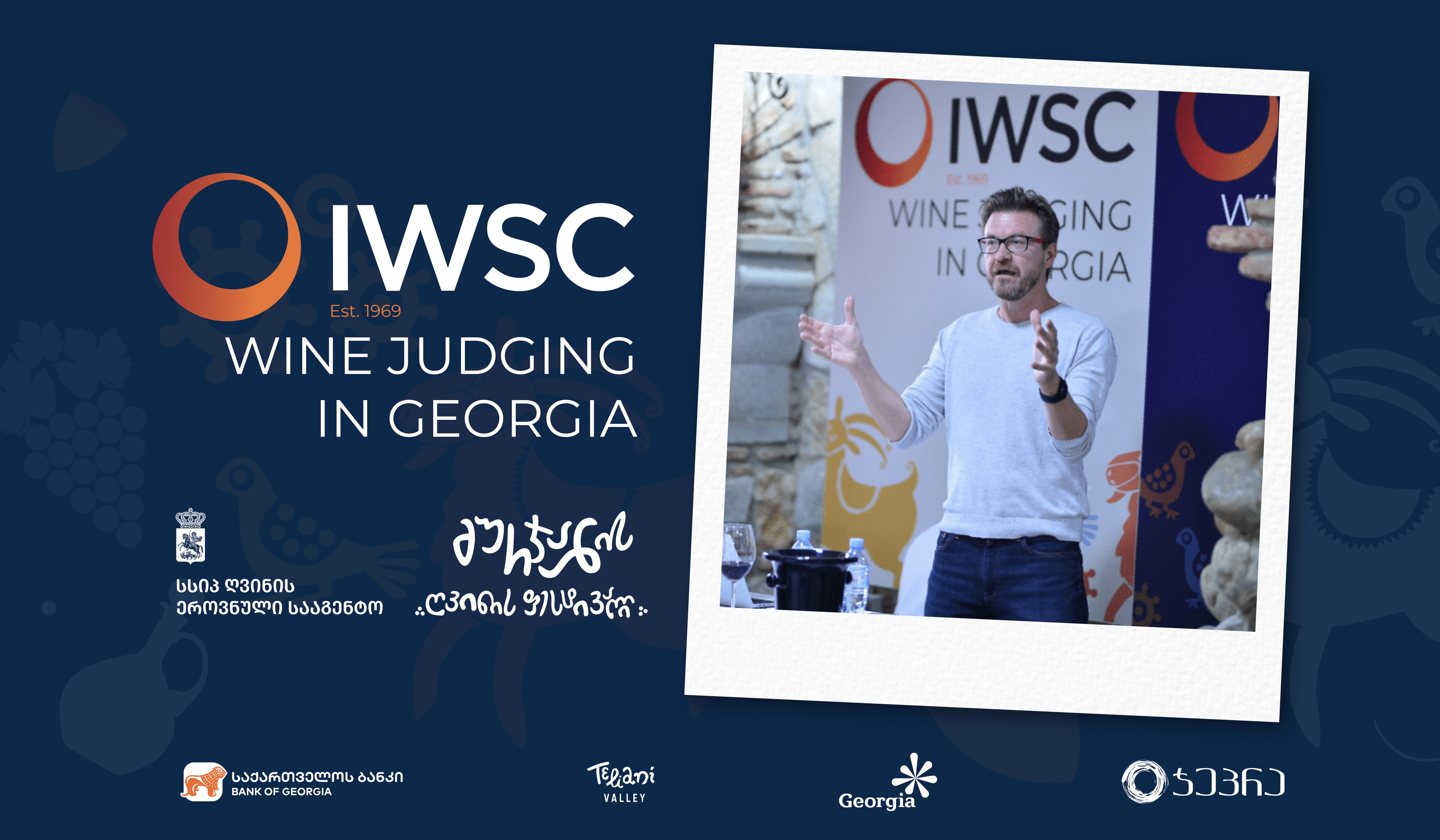
IWSC 2024 Wine Judging in Georgia: deliberations from our judges
Our team of international experts spent an eventful week in Kakheti, Georgia’s biggest wine region, during our Global Judging event organised in partnership with the Gurjaani Wine Festival and National Wine Agency of Georgia.
The judges visited Kakhetian wine producers, from big, benchmark wineries to boutique, family-run projects, and tasted their way through over 500 entries. This year, in addition to the wines from Georgia itself, we were delighted to welcome entries from Armenia and Azerbaijan.
The judging panel was overseen by Alistair Cooper MW. A stellar team of international experts joined Alistair at the tasting table: Cat Lomax, Emma Penman, Will Hill, Georgios Iordanidis, Melania Battiston, David Kermode, Zara Serobyan and Salvatore Castano. Local Georgian judges also joined the panel bringing their invaluable insight and knowledge of the region.
“I am very impressed. This is my second trip to Georgia, the first one was 4-5 years ago. There has been a huge step forward in quality since that time; we enjoyed some absolute top-end wines during this judging,” shared Alistair Cooper MW.
The judges appreciated the careful use of oak, as well as the individuality and the distinctive regional character of many Georgian wines that entered the competition. This character really shone through in Georgian qvevri wines, which put on a brilliant performance: 9 golds and many more silver and bronze medals have been awarded to orange wines made following this tradtional method.
“The best-performing wines were orange wines – we found a number of great examples, which were a joy to taste. The very best of these won gold medals due to their fresh acidity, highly perfumed nose, elegant palate and restrained, non-drying extract,” shared the judges.
Kisi and Rkatsiteli are the grapes that showed particularly well when vinified in qvevri, said our experts. One of the highest scoring wines of the Georgian judging was a Kakhetian orange Rkatsiteli. The wine earned 97 points and a solid gold with judges praising its nose of sweet dried apricots, golden raisins and freshly baked pastry, as well as its velvety texture and a long lasting finish.
Saperavi, Georgia’s most widely planted red variety, was another standout grape with good results achieved by both qvevri and non-qvevri styles. The judges noted, when it comes to Saperavi, careful extraction, tanning management and a cautious use of oak are key. With the right approach in the vineyard and at the winery Saperavi yields juicy, lush, well-structured wines.
“Saperavi is a great variety. It’s like Malbec in a way – it’s very accessible, it has a lot to offer, it’s very consumer-friendly. And it has the ability to age really well – we tasted some wines that were 13 years old and they showed really well,” shared the judges.
Overall, Georgian wines performed exceptionally well at this year’s tasting with more than 280 medals awarded in total.
Speaking of Armenian wines tasted this week, the judges highlighted that Areni from Vayots Dzor region performed well, with 9 strong medals earned by Areni wines.
“The most successful wines allowed the character of the grape to shine through (red cherry notes), but were ripe and had balanced acidity. We did find a couple of wines where the oak was too heavy, so this is something for producers to be conscious of when making decisions in the winery,” revealed the judges.
Other Armenian varieties that performed well were Akhtanak & Nrneni, said the judges. In total, Armenian wines received over 20 medals, with nearly half of all entries from this country being awarded.
